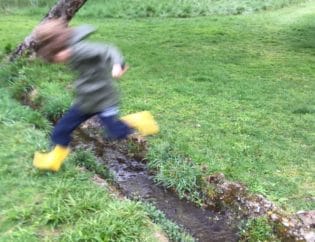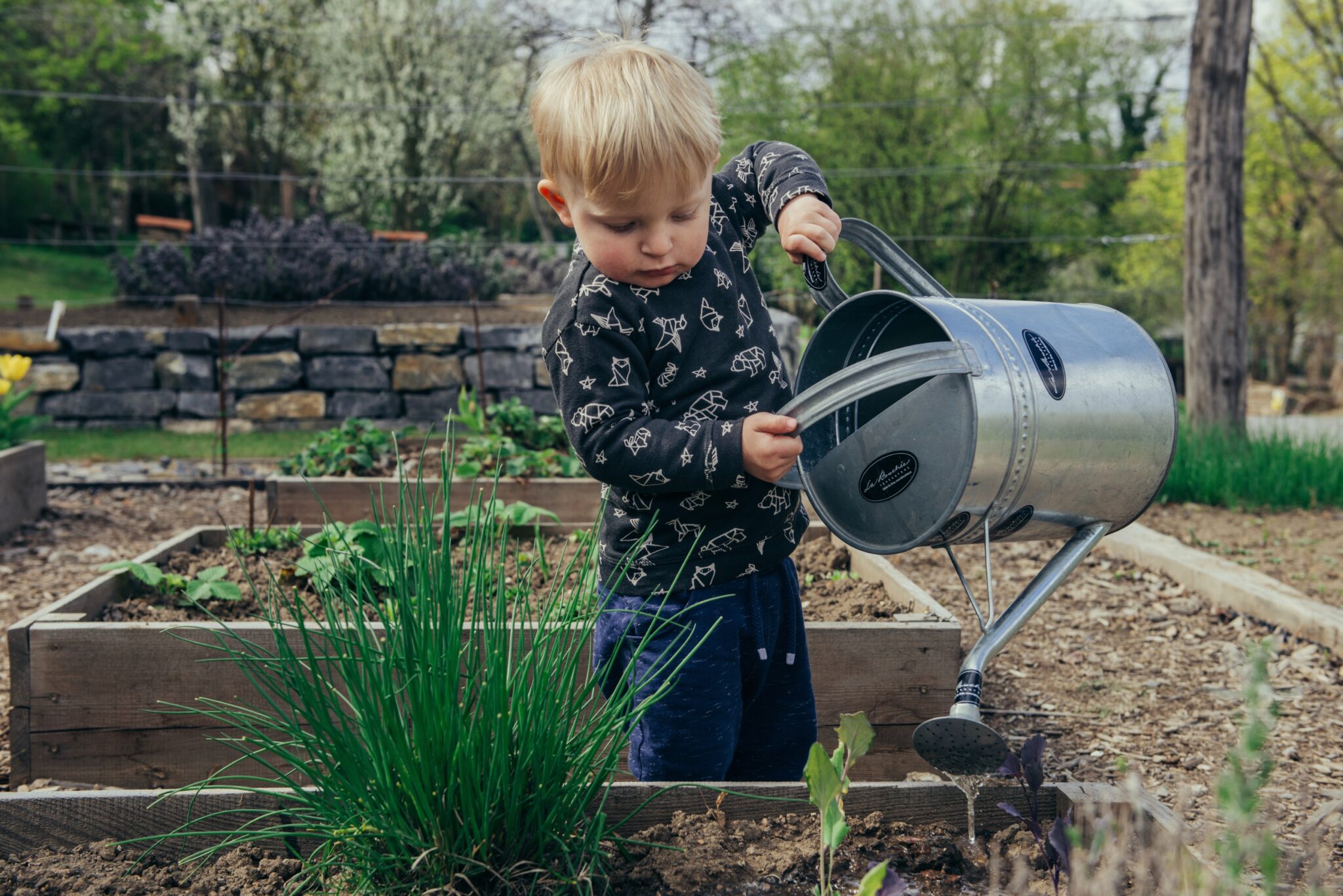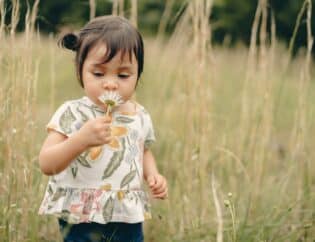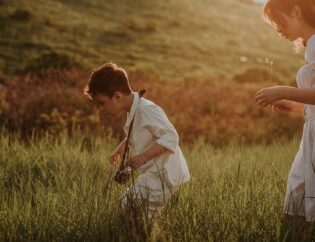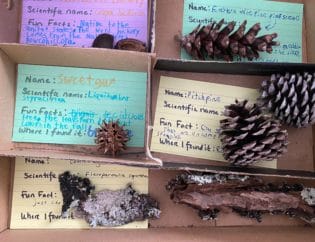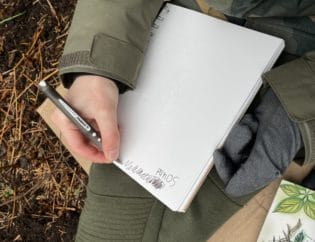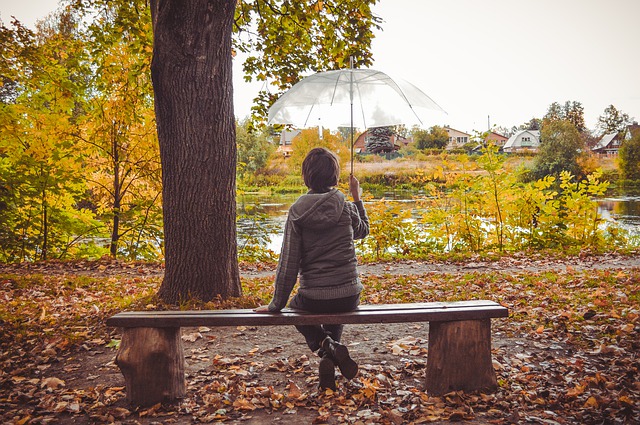
Nature is inspiring. But rain, nature’s way of refreshing everything, is miraculous. When rain is in the forecast, don’t see it as a bad thing. See it as an opportunity to help children see the earth in a refreshed and renewed way.
Walt Whitman called rain the poem of the earth in the poem "Voice of the Rain.” The master poet captured the sense of contentment rain brings. Of course, he did. You can’t look at the outdoor world when it’s raining and not feel something whether that be dreary, excited, happy, curious, gloomy, renewed, or grateful.
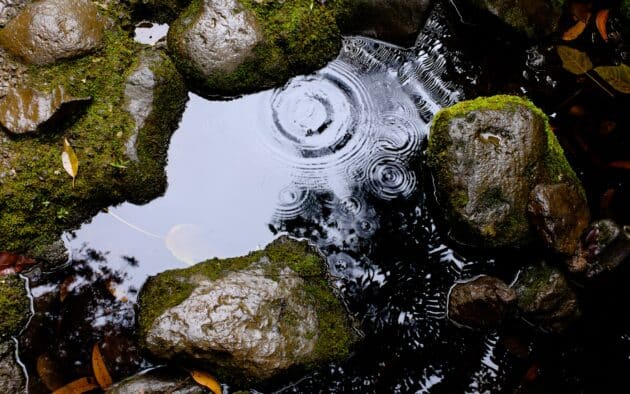
THE VOICE OF THE RAIN.
And who art thou? said I to the soft-falling shower,
Which, strange to tell, gave me an answer, as here translated:
I am the Poem of Earth, said the voice of the rain,
Eternal I rise impalpable out of the land and the bottomless sea,
Upward to heaven, whence, vaguely form'd, altogether changed,
and yet the same,
I descend to lave the drouths, atomies, dust-layers of the globe,
And all that in them without me were seeds only, latent, unborn;
And forever, by day and night, I give back life to my own
origin, and make pure and beautify it;
(For song, issuing from its birth-place, after fulfilment, wander-
ing,
How to Write a Rain Poem
Poetry comes down to observation. There is so much to take in on a rainy day. Take your child outdoors immediately when it rains to have them explore this (re)newed world with all of their senses. Don't forget to gear up! Make sure little feet are dry and rain jackets are on.
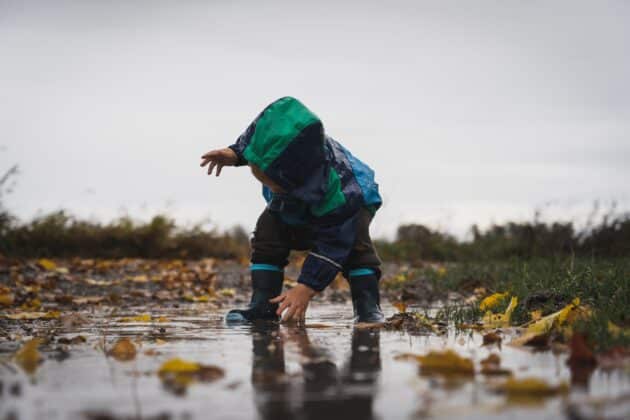
Look around with your child. Ask them to think about how rain changes the outdoor world. How does the rain change the environment? Are there new streams from rainwater, or new puddles? How do the trees look different in the rain? What does rain do on concrete? Does that water get absorbed into the ground? Compare that to an area with dirt and plants.
Talk about the size of the raindrops, their speed, direction, weight, heaviness, touch on the skin, sound when they hit surfaces, affect on the landscape.
Explore sensations on the skin such as the feel of the chilly wind, icy drops, heavy, light, spray, drizzle.
Look up at the clouds. Do they look menacing? Gray, misty, heavy with rain?
Find a mud puddle for your child to stomp in. Suggest they squish some mud between their hands.
Ask your child what are critters doing on a rainy day? What do they see and hear? Are birds quiet at times, growing louder at other times? What about insects?
Ask your child to describe the sounds of the rain. Is it a drip, drip or a plop plop?
After your child has used all of their senses to take in this smorgasbord of elements, head inside to have your child capture the magic of the rainy natural world in the form of a poem. Poems are an excellent way to teach kids to tune into nature, make detained observations, build vocabulary, and improve sentence formation. Rain can symbolize emotions such as peace, relaxation, joy, sorrow, anger, and curiosity.
The next time rain is in the forecast, take the opportunity to explore the outdoors with your child. Help them open their senses to the wonderful sights, smells, sensations, and sounds of nature in the rain.
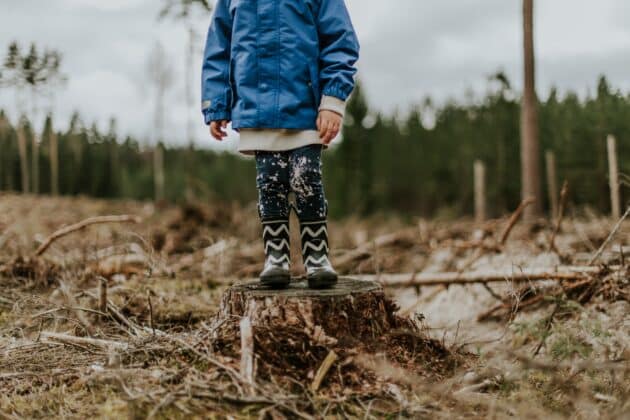
Here are some more poems about rain to inspire your young nature poets:
April Rain Song by Langston Hughes
Let the rain kiss you
Let the rain beat upon your head with silver liquid drops
Let the rain sing you a lullaby
The rain makes still pools on the sidewalk
The rain makes running pools in the gutter
The rain plays a little sleep song on our roof at night
And I love the rain.
Rain Poem by Elizabeth Coatsworth
The rain was like a little mouse,
Quiet, small, and gray,
It pattered all around the house
And then it went away.
It did not come, I understand,
Indoors at all, until,
It found an open window and
Left tracks across the sill.


